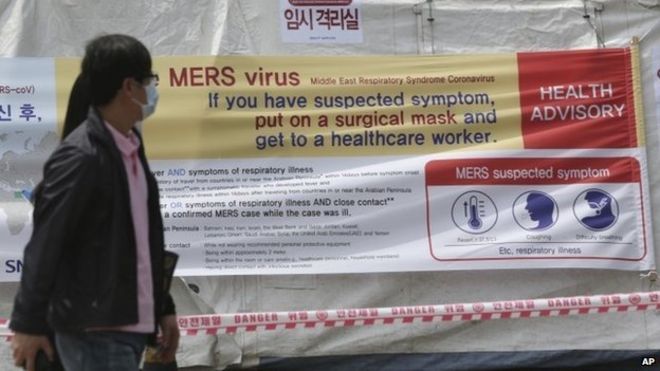South Korea has introduced a new law on Thursday designed to curb the outbreak of MERS virus (Middle East Respiratory Syndrome).
 South Korea has introduced a new law on Thursday designed to curb the outbreak of MERS virus (Middle East Respiratory Syndrome), tightening quarantine restrictions and imposing jail sentences on those who defy anti-infection measures in a crisis that has left by far 31 dead.
South Korea has introduced a new law on Thursday designed to curb the outbreak of MERS virus (Middle East Respiratory Syndrome), tightening quarantine restrictions and imposing jail sentences on those who defy anti-infection measures in a crisis that has left by far 31 dead.
Under the new law people infected with the virus who lie to state investigators about how they came into contact with the disease will face a fine or a prison sentence.
"False testimony would entail up two years in prison or 20 million won ($18,000) in fines," said the Health Ministry about the new law.
It replaces the maximum two-million-won fine that could be meted out to anyone who did not tell the truth under previous legislation.
"Interviewees will (now) feel compelled to provide honest answers," the ministry said in a press statement.
The new law also strengthens officials' power to restrict the movement of infected people and close contaminated facilities, with offenders who refuse to follow their orders also facing two years in prison or a $18,000 fine.
The number of state health workers in charge of preventing outbreaks and tracing them will also be doubled to more than 60.
The legislation comes as South Korea's government is facing criticism for failing to stop the MERS outbreak. which has now become the largest outside Saudi Arabia.
Critics say the lack of coordinated control among health authorities, hospitals and local governments, combined with an inadequate number of quarantine experts and shortfalls in expertise, are responsible for the failure to stem the virus in the initial stage of the outbreak.